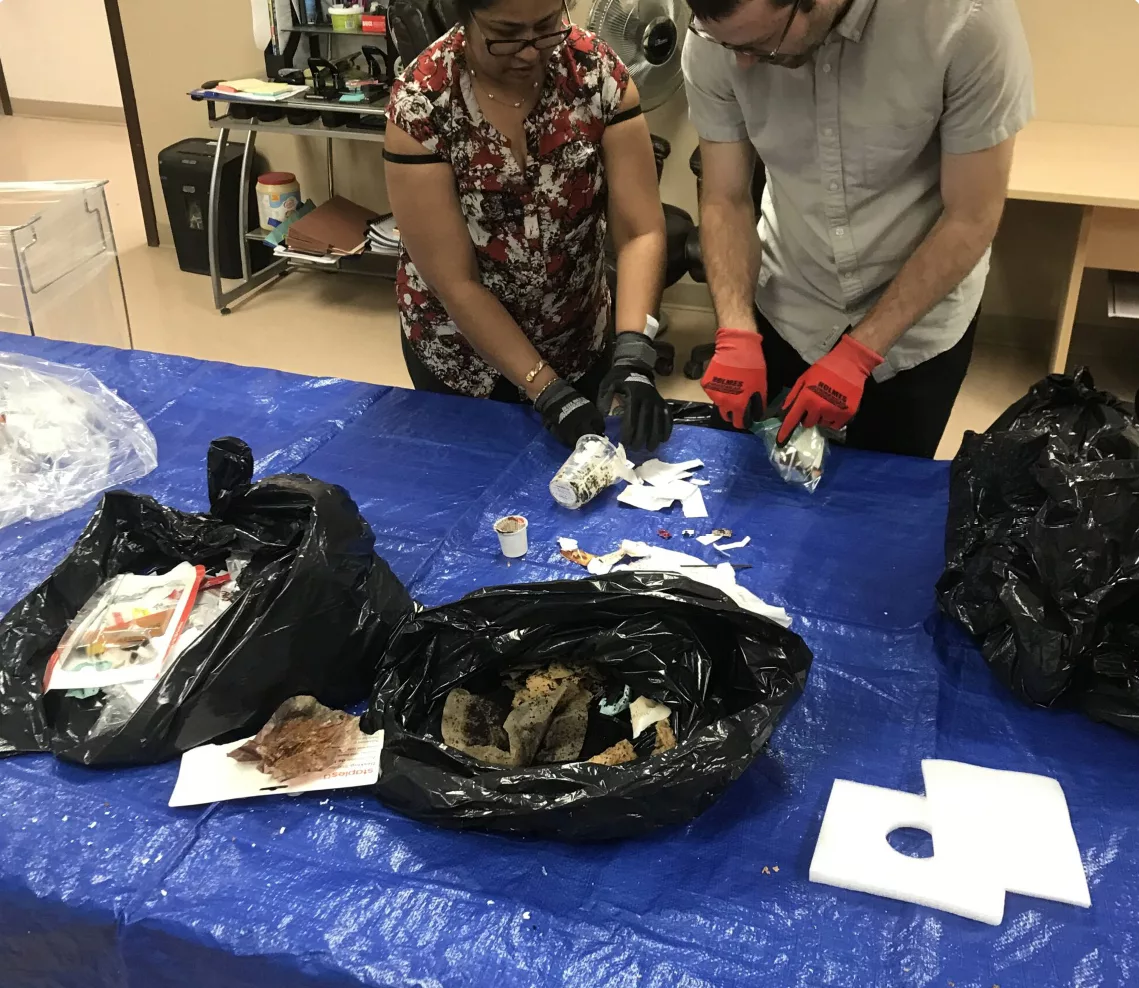Buy Less, Fix More, Trade Often

Have you ever thought about the resources required to make your cell phone? Or what it took to produce the jeans you are wearing? From resource extraction to disposal, the materials economy has created a linear system of consumption on the finite planet we call home. This presentation covers ways to help our planet � buy�less,�fix�more, trade often, and divert all waste from the landfill.
More Resources
More Blog Posts
More Events
Other Presentations/Workshops

Composting Basics and Getting Started
Backyard composting is a cost effective method that is particularly appealing for gardening, as they’re able to use the finished product as organic fertilizer.
Composting Basics and Getting Started
Backyard composting is a cost effective method that is particularly appealing for gardening, as they’re able to use the finished product as organic fertilizer.

FNWM: Electronic Waste
Consumer batteries are among the easiest materials to collect in yourcommunity for recycling. Call2Recycle will cover the cost of shipping consumer batteries from your community if you become a collection partner and follow their guidelines.
FNWM: Electronic Waste
Consumer batteries are among the easiest materials to collect in yourcommunity for recycling. Call2Recycle will cover the cost of shipping consumer batteries from your community if you become a collection partner and follow their guidelines.

Protecting Mother Earth
Intended for First Nation classrooms, this presentation provides a basic understanding of Traditional Ecological Knowledge in relation to Indigenous worldviews – how we are connected with the planet and how we must find a harmonious balance with our environment for the sake of the next seven generations. This includes actions students can take at home, in school, or within their community. Examples will explore what other schools in First Nation communities around Manitoba are doing to reduce their impact on Mother Earth.
Protecting Mother Earth
Intended for First Nation classrooms, this presentation provides a basic understanding of Traditional Ecological Knowledge in relation to Indigenous worldviews – how we are connected with the planet and how we must find a harmonious balance with our environment for the sake of the next seven generations. This includes actions students can take at home, in school, or within their community. Examples will explore what other schools in First Nation communities around Manitoba are doing to reduce their impact on Mother Earth.

Living Sustainably - Part 2
As a follow up to the presentation, we will play an environmental version of Jeopardy for the students to put into practice what they just learned.
Living Sustainably - Part 2
As a follow up to the presentation, we will play an environmental version of Jeopardy for the students to put into practice what they just learned.

Tracking the Blue Box
Everyone is curious about what happens to recyclables after they get picked up. Using samples and illustrations, this presentation tracks four common materials (paper, metal, glass, plastic) from blue box through re-processing to end use. With older students, we also critically consider the role of recycling as a resource conservation practice. Our most popular presentation.
Tracking the Blue Box
Everyone is curious about what happens to recyclables after they get picked up. Using samples and illustrations, this presentation tracks four common materials (paper, metal, glass, plastic) from blue box through re-processing to end use. With older students, we also critically consider the role of recycling as a resource conservation practice. Our most popular presentation.

Complete School Composting Set-Up
The complete set-up includes a site visit, ongoing consultation support/troubleshooting, and customized training for students and staff.
Complete School Composting Set-Up
The complete set-up includes a site visit, ongoing consultation support/troubleshooting, and customized training for students and staff.
